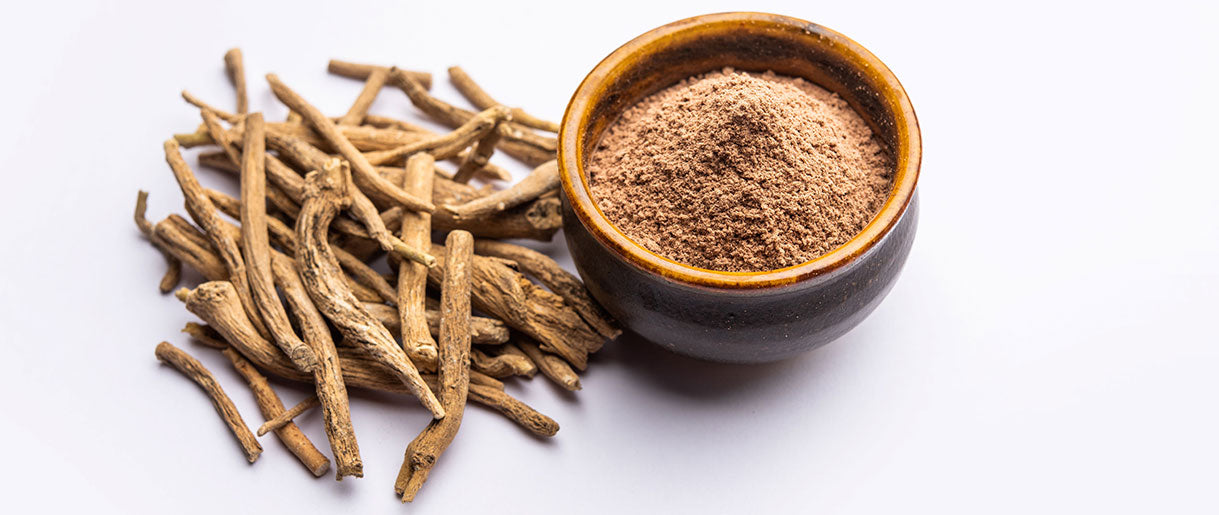Hey, have you heard about Ashwagandha? This Ayurvedic superstar is known for its incredible ability to reduce stress, boost energy, support hormones, and sharpen focus. So, when's the best time to tap into its power?
Well, here's the scoop: taking Ashwagandha extract in the morning can help start your day with increased energy and focus.
It's like having your own personal cheerleader, giving you the motivation and mental clarity to tackle whatever comes your way.
On the other hand, an evening dose is ideal for those looking to unwind and enjoy a restful sleep.
Picture yourself drifting off into a peaceful slumber, letting go of the day's worries and waking up feeling refreshed and rejuvenated.
But hey, let's keep it real—everyone's wellness journey is unique, and what works for one person might not be the perfect fit for another. It's all about listening to your body and finding that sweet spot that makes you feel your best.
So, are you ready to dive deeper into the fascinating world of Ashwagandha? Let's explore how this ancient herb can be your ultimate sidekick in today's fast-paced, modern life.
Why Some People Take Ashwagandha in The Morning

Have you ever wondered if there's a secret to starting your day on the right foot? Well, taking Ashwagandha in the morning might just be that whispered secret. Here's why:
- Morning Boost: Imagine giving your body a gentle nudge each morning, not just to wake up but to really awaken. Ashwagandha sets the stage for a day filled with enhanced mental alertness and physical energy. It's like saying, "Let's do this!" to every challenge that comes your way.
- Stress-Busting Hero: When the stress hormone cortisol peaks in the morning, Ashwagandha steps in like a calm commander, reducing stress and modulating your body's stress response (1). It's like having a personal stress shield as you dive into your day.
- Sharper Focus, Calmer Mind: In the whirlwind of morning tasks, Ashwagandha is your anchor, enhancing cognitive functions and ensuring your focus is laser-sharp. Its anxiolytic effects work wonders in melting away those morning jitters, setting a serene tone for your entire day—it is the perfect addition to a morning routine for anxiety.
Well, now we know the benefits of Ashwagandha that could make it a perfect addition to your morning routine checklist. However, how do you synchronize the potent herb with your routine? Here is how:
- Breakfast Buddy: Integrating the Ashwagandha supplement with your breakfast not only enhances absorption but also makes it a seamless part of your wellness ritual. It's like having a wellness companion at the start of each day.
- Workout Enhancer: If mornings are when you get moving, Ashwagandha's got your back. It's known for improving physical performance (2), giving you that extra edge in your morning workout routines.
Why Evening Might Be the Perfect Time for Ashwagandha

As the sun sets and the world quietens, your evening routine is crucial for unwinding and preparing for a good night's sleep.
Including Ashwagandha in your nighttime regimen could be the game-changer you've been looking for. Here's how it can transform your evenings:
- Stress Melter: After a long day, Ashwagandha steps in as your personal stress reliever. Reducing perceived stress and chronic stress (3), this herb helps you transition from the hustle and bustle into a state of calm, setting the stage for a peaceful evening.
- Soothe the Mind: It's not just about physical relaxation; Ashwagandha also targets your mental health. By alleviating anxiety symptoms (4), it quiets the mind's chatter, allowing you to relax and be in the moment.
- A Nudge to Dreamland: Struggling with sleep? Ashwagandha might just be the nudge you need. Its ability to improve sleep quality (5) is a boon for those looking to drift off into a more restful night. Think of it as your gentle lullaby in supplement form.
- Nighttime Rejuvenation: While you sleep, Ashwagandha continues to work its magic. Known as Withania Somnifera or Indian Ginseng, this powerful herb supports your body's natural rejuvenation process, helping you wake up feeling energetic, refreshed and renewed.
If you seek the above benefits, your next question will probably be: "How do I incorporate this herb into my evening routine?" Well, we've got your back:
- Tea Time: As part of your bedtime routine, consider sipping a warm cup of Ashwagandha tea—one of the best caffeine-free teas. It's not just about the benefits; it's about creating a moment of tranquility in your busy life.
- Supplemental Serenity: Whether it's ashwagandha root extract or ashwagandha powder, incorporating this supplement into your evening can seamlessly blend health benefits with the quiet of the night.
Factors Influencing Your Ideal Ashwagandha Time

Tailoring your Ashwagandha intake isn't a one-size-fits-all affair. It's about tuning into your body's unique rhythm and needs. Let's explore how to personalize your routine for the most beneficial experience:
- Lifestyle Dynamics: Your daily routine is uniquely yours. Are you an early riser geared up for morning challenges, or do you find your stride as the night unfolds? Align your Ashwagandha intake with the rhythm of your life to enhance its stress-relieving and vitality-boosting effects.
- Health Goals: What are you aiming for? Better sleep quality, reduced perceived stress, or a hormonal balance? If mornings are when stress hits the hardest, consider a morning dose. If unwinding at night is challenging, an evening dose might be your ticket to tranquility.
- Body's Response: Pay attention to how your body reacts. Ashwagandha supplements might energize some while calming others. Monitoring your body's response is crucial in determining the best time to take Ashwagandha.
Tips for Monitoring and Adjusting Your Intake Time
Embarking on your Ashwagandha journey is like setting sail on a personal voyage towards well-being. But as with any voyage, careful navigation is the key to a smooth journey.
This is where monitoring and adjusting your intake time becomes crucial.
Whether you're a seasoned Ashwagandha user or just beginning to explore the potential health benefits of ashwagandha supplementation, understanding how to fine-tune your routine can significantly enhance your experience:
- Start with Observation: Before making any changes, observe how your current routine affects your sleep quality, stress levels, and overall vitality. Keeping a journal can be a helpful tool in this discovery phase.
- Experiment Thoughtfully: Ready for a change? Adjust your intake time gradually. If you're shifting from morning to night or vice versa, do it slowly and monitor the changes. How do you feel in terms of stress relief and overall well-being?
- Mind the Thyroid: Ashwagandha influences circulating thyroid hormone concentrations (6) in healthy adults. If you're monitoring your thyroid levels or taking thyroid hormone medications, keep an eye on how adjustments in your routine might affect this delicate balance.
- Seek Professional Insight: Sometimes, expert advice goes a long way. Don't hesitate to consult with a healthcare professional, especially if you're juggling other supplements or medications.
Interactions with Other Supplements Can Affect Timing

Ashwagandha is known for its adaptogenic and anxiolytic effects, making it a popular choice for those looking to bolster their mental health conditions and manage stress and anxiety.
For this reason, most consider it a powerful addition to a morning routine for depression or anxiety.
However, combined with other immune system dietary supplements, it can amplify the benefits or interfere with them. Always consider the following:
- Consultation is Key: Before introducing Ashwagandha into a stack of supplements or alongside medications, consult with a healthcare professional. This ensures safety and efficacy, especially when dealing with potent substances.
- Understanding Interactions: Ashwagandha might interact with thyroid, blood sugar, or blood pressure medications. It's essential to understand these dynamics to avoid any adverse effects.
Your Diet Can Influence The Best Time to Take Ashwagandha
Considering what you have eaten right before taking this supplement is vital if you consider taking advantage of the health benefits of Ashwagandha for men or women.
You see, some foods can enhance the herb's health benefits while others might impact its benefits negatively:
- Complementary Foods: Certain foods can enhance the potential health benefits of Ashwagandha. For example, consuming it with milk or a fat source may increase absorption and efficacy due to its fat-soluble components.
- Foods to Avoid: On the flip side, highly processed and sugary foods might diminish its stress-relieving and adaptogenic properties. A clean, balanced diet complements Ashwagandha's role in your wellness journey.
- Hydration Matters: Proper hydration is vital when taking any supplement. Ensure you're drinking enough water to support your body's natural processes and the efficacy of Ashwagandha.
FAQs About When to Take Ashwagandha
How Long Does It Take For Ashwagandha To Work?
Ashwagandha's effects typically become noticeable after 4 to 12 weeks of consistent use, though some individuals might experience changes sooner.
The timing of its effectiveness varies based on factors like dosage frequency. To accurately gauge its impact, tracking its effects over time is recommended.
Can I Take Ashwagandha Before A Workout?
For the most advantages, Ashwagandha should be taken 30 to 60 minutes before exercise. Ingesting Ashwagandha before working out may improve athletic performance.
According to one study (7), those who took Ashwagandha had greater stamina and strength than those who took a placebo.
Should I Take Ashwagandha With A Meal?
Ashwagandha can be ingested with or without food and is commonly taken as a pill or powder. Some people favor taking it on an empty stomach, while others favor taking it alongside food.
It's vital to remember that in some people, taking Ashwagandha on an empty stomach could make them feel sick. So, how you consume Ashwagandha will depend on your needs and preferences.
Key Takeaways
As we've journeyed together through the dynamic world of Ashwagandha, it's clear that this isn't just another supplement; it's a companion in your quest for balance, vitality, and tranquility.
From understanding the optimal time for consumption to personalizing your routine and synergizing with other elements of your life, you're now equipped to embrace Ashwagandha with confidence and wisdom.
Remember, your path with Ashwagandha is as unique as you are. It's not about following a set script; it's about listening to your body, adjusting as you go, and finding that sweet spot where stress diminishes and vitality flourishes. Whether you're a morning person, finding your zen in the quiet of the evening, or somewhere in between, Ashwagandha supports your journey.
And now, we turn the page to you. Your experiences, insights, and stories are what truly bring this journey to life.
Have you found your perfect Ashwagandha moment? What shifts have you noticed in your stress levels, mental clarity, or overall well-being? Dive into the comments below and share your chapter in this ongoing story of wellness and discovery.
References
- A Prospective, Randomized Double-Blind, Placebo-Controlled Study of Safety and Efficacy of a High-Concentration Full-Spectrum Extract of Ashwagandha Root in Reducing Stress and Anxiety in Adults, (1), https://www.ncbi.nlm.nih.gov/pmc/articles/PMC3573577/
- Effects of Ashwagandha (Withania somnifera) on Physical Performance: Systematic Review and Bayesian Meta-Analysis, (2), https://www.ncbi.nlm.nih.gov/pmc/articles/PMC8006238/
- An investigation into the stress-relieving and pharmacological actions of an ashwagandha (Withania somnifera) extract A randomized, double-blind, placebo-controlled study, (3), https://journals.lww.com/md-journal/fulltext/2019/09130/an_investigation_into_the_stress_relieving_and.67.aspx
- Adaptogenic and Anxiolytic Effects of Ashwagandha Root Extract in Healthy Adults: A Double-blind, Randomized, Placebo-controlled Clinical Study, (4), https://www.ncbi.nlm.nih.gov/pmc/articles/PMC6979308/
- Clinical evaluation of the pharmacological impact of ashwagandha root extract on sleep in healthy volunteers and insomnia patients: A double-blind, randomized, parallel-group, placebo-controlled study, (5), https://pubmed.ncbi.nlm.nih.gov/32818573/
- Efficacy and Safety of Ashwagandha Root Extract in Subclinical Hypothyroid Patients: A Double-Blind, Randomized Placebo-Controlled Trial, (6), https://pubmed.ncbi.nlm.nih.gov/28829155/
- Examining the effect of Withania somnifera supplementation on muscle strength and recovery: a randomized controlled trial, (7), https://jissn.biomedcentral.com/articles/10.1186/s12970-015-0104-9










Let Us Know Your Comments